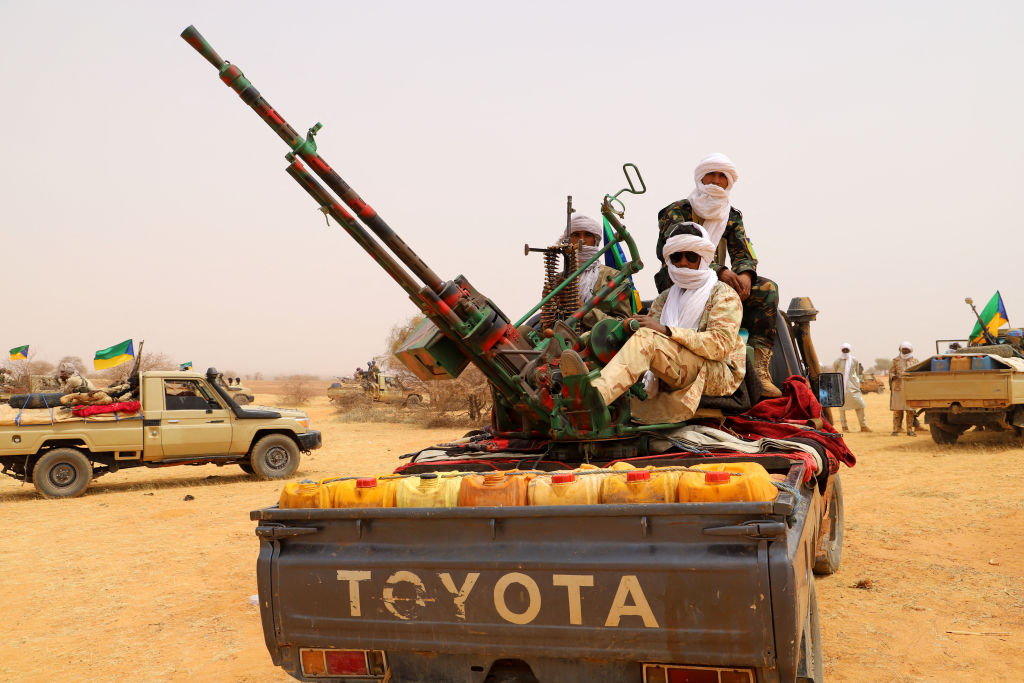ADF STAFF
Restoring security was the main justification used by coup leaders in Burkina Faso and Mali when they seized power. New data shows they are not delivering on these promises.
In fact, both countries at mid-year were on pace to experience their deadliest year since the Sahel conflict began a decade ago, according to the Armed Conflict Location & Event Data Project (ACLED).
In Mali, violence by extremist groups is on pace to increase by 70% in 2022, and civilian deaths from extremist violence in the first quarter of the year were higher than any preceding year, according to the Africa Center for Strategic Studies.
Burkina Faso also is on track to exceed last year’s violence. Since July, violence has displaced about 6,700 people in the country’s Boucle du Mouhoun region, according to Doctors Without Borders.
Mali has had three military coups since 2012, including two since 2020. The presence of Russia’s Wagner Group mercenaries is leading to further instability after an estimated 1,000 Wagner fighters flooded the country last year.
As Russia increasingly enters the fray, other foreign troops are leaving.
The last French Army unit left Mali on August 15 after a nine-year mission to combat extremism in the country’s northern and central regions. Weeks earlier, Germany’s military suspended reconnaissance and transport operations in Mali after the junta blocked a rotation of German troops that contributed to a multinational security force.
“It must be feared that the situation there will intensify further in coming months,” German Foreign Minister Annalena Baerbock told reporters on August 25. “That’s why it’s so important that we work against the Russian narrative and do everything together to minimize the terrible effects of this war where we can.”
‘Poisonous Climate’
The July arrests of nearly 50 Soldiers from Côte d’Ivoire in Mali underscored the junta’s isolation from neighboring countries. The Ivoirian Soldiers were labeled “mercenaries” by Malian authorities. Côte d’Ivoire said they are part of a logistics support team.
Amid backlash, Mali temporarily suspended the United Nations Multidimensional Integrated Stabilization Mission in Mali (MINUSMA) troop rotation. The U.N. mission in Mali includes 12,000 troops and 1,700 police officers that have tried to help stabilize the country since 2013. A streamlined rotation of U.N. troops in Mali resumed on August 15.
Alioune Tine, a U.N. independent expert on human rights in Mali, noted a resurgence of extremist violence and increasing attacks in the country’s northern and central regions, and around the capital city of Bamako, after a 10-day visit in mid-August.
“There is a poisonous climate marked by suspicion and mistrust, with a continuous narrowing of civic space, the hardening of the Malian transitional authorities, and a malaise that does not spare international partners,” Tine said on the U.N.’s website.
‘Profound Disregard’ For Life
Extremist groups in Burkina Faso have increasingly killed, executed, raped and pillaged since the January 2022 coup, Human Rights Watch reported. Militant groups also increased attacks against teachers, students and schools.
“Armed Islamist groups are demonstrating day after day their profound disregard for the lives and livelihoods of civilians” in Burkina Faso, Corrine Dufka, Sahel director at Human Rights Watch, said on the organization’s website. “Government forces and associated militias must scrupulously uphold international human rights and humanitarian law and desist from killing in the name of security.”
The al-Qaida-affiliated terrorist group Jama’at Nusrat al-Islam wal-Muslimin (JNIM) conducted more than 400 attacks in 10 of Burkina Faso’s 13 regions in the first half of 2022. The group was involved in about 70% of the violent events reported in the country and carried out more than five times as many attacks on civilians as Islamic State in the Greater Sahara, according to ACLED.
On August 27, hundreds of civilians took to the streets of Dori to protest insecurity. Several marchers held a banner that read: “The Sahel has been abandoned. It is in agony.”
“The Sahel is united in saying ‘no’ to the incompetence of the authorities. People want to go to sleep and wake up in peace,” Yaya Dicko, a coordinator of the protest, told Radio France Internationale.

